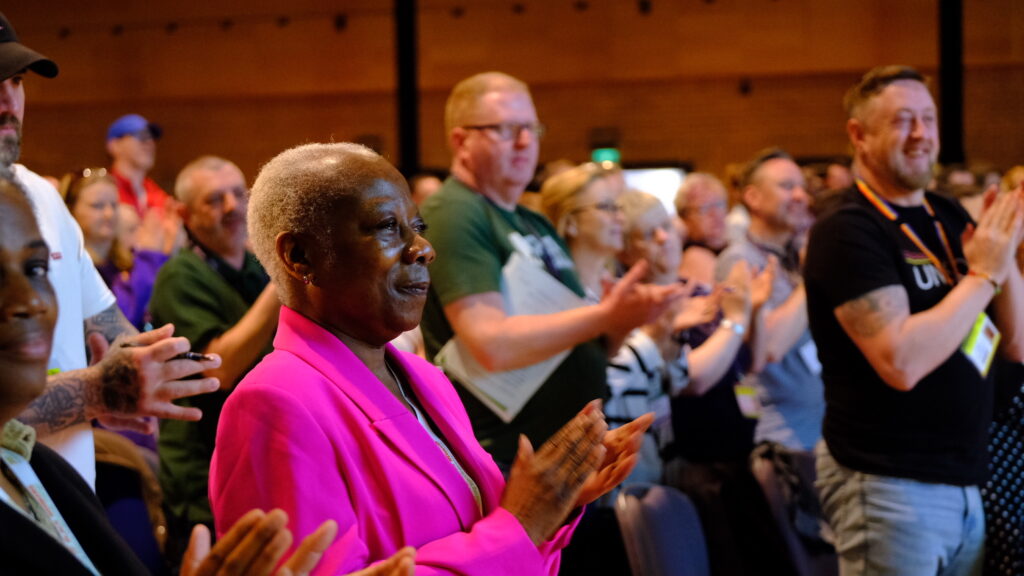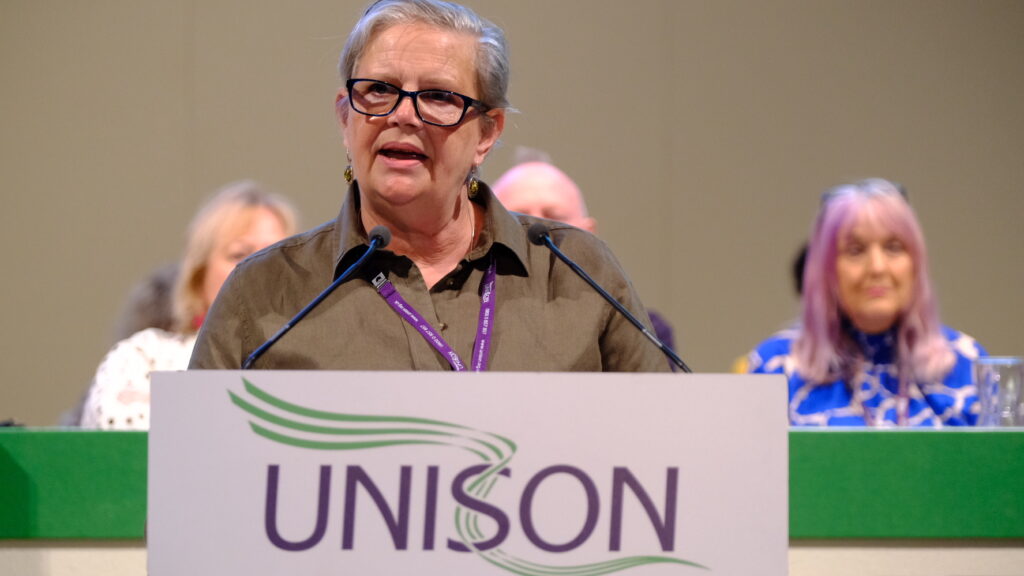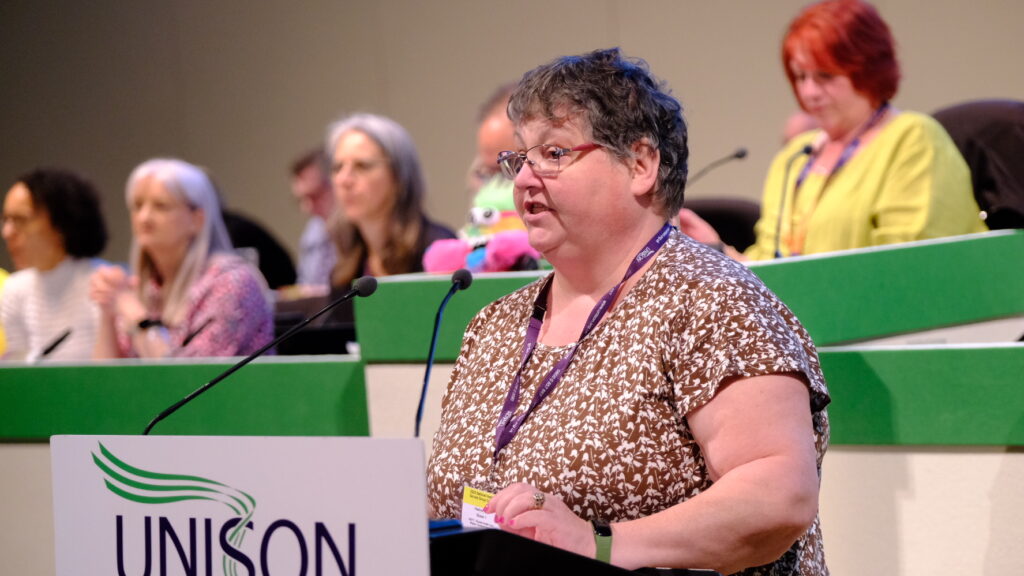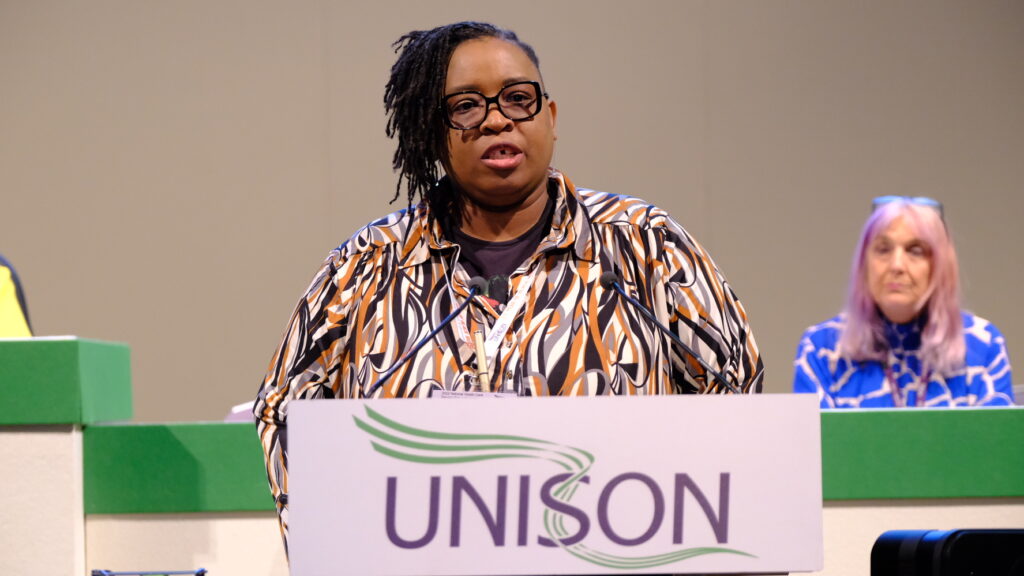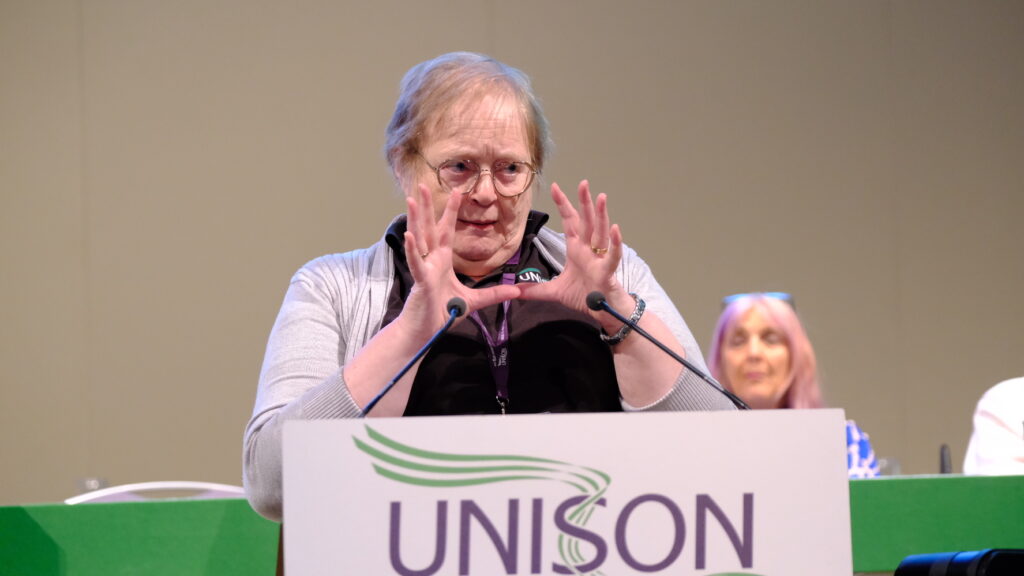Tuesday afternoon at health conference saw a group of motions on professional and occupational issues.
Top on the agenda was a motion calling for ‘A new deal for healthcare assistants’. It called on the health SGE to continue to build on the work of the highly successful Pay Fair for Patient Care campaign.
The campaign focusses on winning significant sums of pack pay for members by fighting for rebanding for healthcare assistants (HCAs) at a local level.
The motion, moved by Annette Heslop, calls for continued campaigning for proper career progression opportunities, better recognition and lobbying for a strategy to professionalise and regulate HCAs.
Ms Heslop said: “Conference, we are the union of HCA’s. Where others talk, we deliver. Across the UK, thousands of HCA’s have taken industrial action to get rebanding.”
But that is not the end of the campaign, she continued: “Now, band 2 health workers [as many HCAs are] are paid only 1 penny above the minimum wage. That is a disgrace. It is time for a new deal for HCAs.”
A number of speakers told conference stories of their successful rebanding campaigns, including Jackie Lewis from Northern Care Alliance who said their campaign had now seen “a total of 2,688 people entitled to backpay, going back as far as April 2018.
“But that’s only the start of it. There’s so much work you can do from this one campaign – the world’s our oyster.”
A charter for change for admin staff
Conference then turned its attention from HCAs to admin staff, and a motion on the new Admin Charter for Change which has just been launched.
Moving the motion, Maura Price from Frimley Health NHS Foundation Trust asked: “What do people see when they think of NHS staff?
“It’s usually nurses, doctors, paramedics and physios. They don’t think of porters, cleaners and least of all admin staff.
“In 2020/21 NHS England launched their people plan. The plan includes seven promises which employers have endorsed. Point one reads they want to make the NHS a place where all employees feel they belong.”
Speaking as an admin worker, she told conference: “The question is… do we feel like we belong?”
She called on delegates to support their admin colleagues and to support the launch of the charter and to take it to their employers.
The charter sets out actions which employers can take to ensure that opportunities for career development and adequate training are on offer for all administrative and clerical support staff.
Katie Hodgson of the health SGE also spoke on the motion. She said she was recently on the judging panel for the first One Team Awards where all 700 entries were operational staff.
“Of the hundreds of nominations we received,” she said, “there were loads of admin workers going above and beyond making the lives of their colleagues that little bit easier.”
She continued that she knew “all too well what it feels like to be undervalued and taken for granted”, arguing that it was vital that employers examine whether job descriptions are up to date and whether staff are paid appropriately for the jobs that they do.
Supporting newly qualified paramedics
A motion later in the afternoon covered how the union can best support newly qualified paramedics.
It highlighted the vital role UNISON played in negotiating agreement that all paramedics be moved to a band 6 in 2016. As part of this agreement the newly qualified paramedic (NQP) programme was formed.
It was designed to provide structure to properly integrate and support NQPs into the ambulance service workplace and allowing them time to apply their knowledge.
Peter Stevenson branch secretary of South East Coast Ambulance Service moved the motion saying: “At the time we were promised a preceptorship which would provide NQPs strong support. But we know that the quality and content of induction processes varies massively across trusts.”
He added that it takes “almost 10 years from starting as a student to being a fully qualified paramedic at the top of their band 6”.
The motion argues that NQPs ‘are being short changed, and employers haven’t kept to their end of the bargain’, concluding that it’s time for employers to deliver the NQP programme as it was intended and accept that paramedics should be paid band 6 from the point of registration.
Another speaker, Matt Wilson, a paramedic from West Midlands ambulance branch, said: “The reality is that you could be going to any job as soon as you qualify, whether you’ve been there two years or 20 years. With that lack of support it shouldn’t be a surprise that our turnover is as high as it is.”
He continued: “As a young member, this falls predominantly on our young members, and I think this campaign is a fantastic opportunity to engage with them.
“Members want meaningful change, and this campaign is a great opportunity to show our young members that the way we make change is by effective union organising.”
The article A new deal for health staff first appeared on the UNISON National site.
